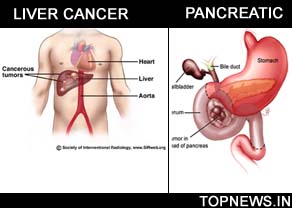Vitamin K, sorafenib combo effective against pancreatic, liver cancers
 Washington, Apr 23 : Researchers from the Kimmel Cancer Centre at Jefferson have found that vitamin K when combined with sorafenib can help curb pancreatic and primary liver cancers.
Washington, Apr 23 : Researchers from the Kimmel Cancer Centre at Jefferson have found that vitamin K when combined with sorafenib can help curb pancreatic and primary liver cancers.
According to Dr Brian Carr, professor of Medical Oncology at the Jefferson Medical College of Thomas Jefferson University, vitamin K1 or vitamin K2, combined with sorafenib (Nexavar) each have shown activity against the growth of human cancer cells by inhibiting the extracellular signal-regulated kinase (ERK) pathway.
This pathway plays a major role in cell growth of cancers.
During the pancreas cancer study, Dr. Carr and his colleagues tested each K vitamin in combination with sorafenib in pancreatic cell lines.
They found that each combination inhibited cell growth, induced cell death and decreased the expression of ERK.
The study also showed that when combining vitamin K and sorafenib, the sorafenib dose required for inhibiting cancer cell growth decreased by more than 50 percent.
However, this dose was ineffective when used alone.
"So few agents have activity against pancreas cancer," Dr. Carr said.
"One of the attractions of the combination of sorafenib and vitamin K is that both of these agents are already approved for human use.
"K vitamins also have no known adult human toxicities, and appear to enhance the effects of sorafenib, thus requiring lower, less-toxic doses," he added.
In the second study, vitamin K1 also enhanced the effects of sorafenib in hepatocellular carcinoma or primary liver cancer.
The researchers previously had shown that vitamin K alone is a weak inhibitor of HCC growth, however, the new study showed that the combination inhibits the growth of HCC, induces cell death and decreases the expression of ERK.
"Many patients need to discontinue treatment with sorafenib because of the debilitating side effects. If we could lower the dose, more patients would be able to complete their treatment," said Dr Carr.
The findings were presented at the AACR 100th Annual Meeting 2009 in Denver. (ANI)